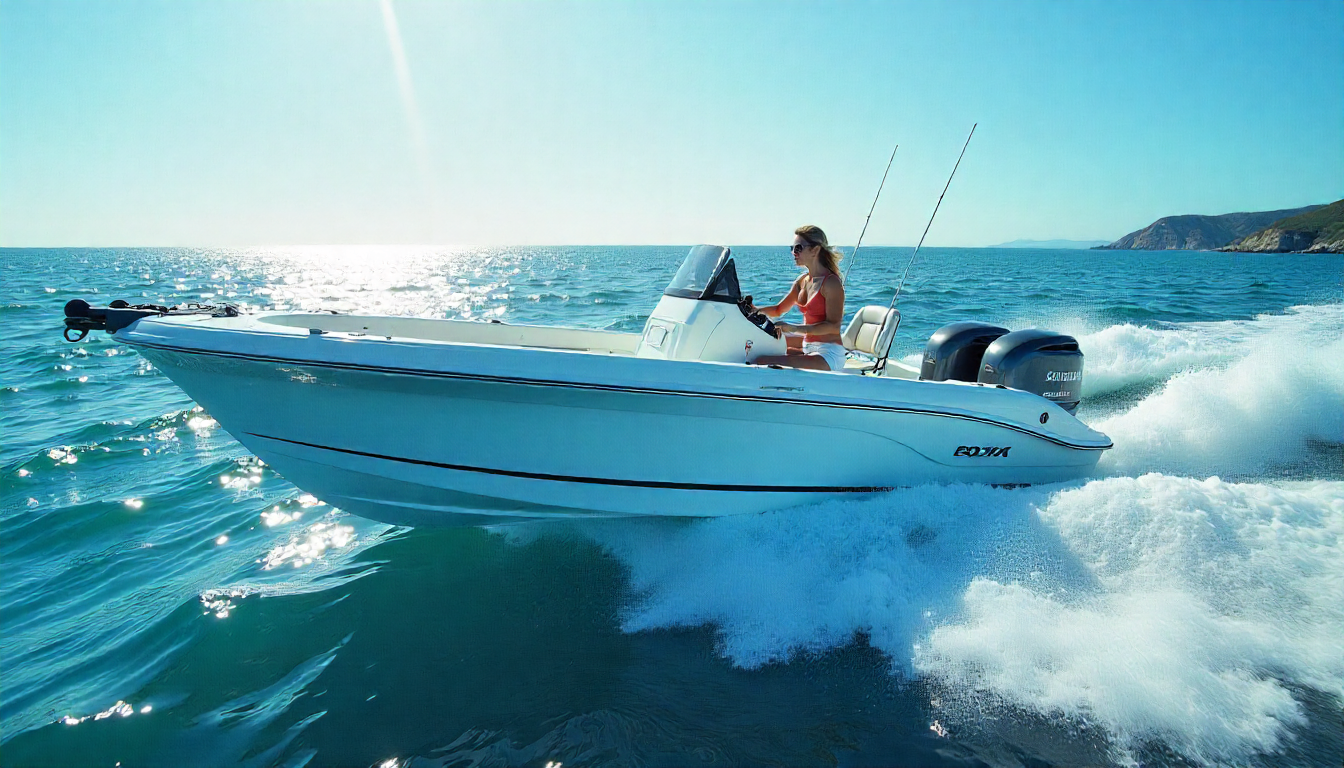When buying a new boat or upgrading your current setup, one of the biggest decisions is choosing between outboard vs sterndrive motors. Both propulsion systems have their advantages and drawbacks, and your decision will affect performance, maintenance, cost, and space on board. Understanding the core differences will help you choose the right motor for your boating lifestyle.
This comprehensive guide breaks down outboard vs sterndrive designs, their pros and cons, maintenance considerations, fuel economy, and more. We’ll also cover performance aspects like power to weight ratios and layout features, including sun pads and swim platforms, to help you make an informed choice.
What Are Outboard and Sterndrive Motors?
Before comparing, let’s define the basics:
- Outboard Motors: Mounted externally on the transom, these motors are highly versatile and easy to maintain. Outboards combine the engine, gearbox, and propeller in a single unit outside the hull.
- Sterndrive Motors: Also known as inboard/outboard engines, sterndrives feature an inboard engine connected to an outdrive unit that extends through the transom. This configuration provides a sleeker look and keeps the cockpit area clear.
Both systems power the boat efficiently, but their design differences influence performance, handling, and space.
Outboard vs Sterndrive: Which Layout Works Best?
The biggest difference between outboard vs sterndrive setups is space and design. An outboard powered boat has engines mounted outside, freeing up interior space for storage or seating. On the other hand, a sterndrive boat hides the engine within the hull, creating a seamless swim platform and often a large sun pad for lounging.
If you value easy access for maintenance and prefer a lighter setup, an outboard boat may suit you. However, if aesthetics and a clean transom are a priority, sterndrives often win.
Performance Comparison: Power, Speed, and Weight Ratio
Performance is a critical factor when comparing outboard vs sterndrive motors. Here’s how they stack up:
Power to Weight Advantages
One of the most significant benefits of outboards is their power to weight efficiency. Modern outboards deliver impressive horsepower without adding excessive weight, improving acceleration and top speed.
Sterndrives, while powerful, tend to add more weight, impacting the weight ratio and overall performance at higher speeds. Still, some boaters prefer the balanced handling that sterndrives offer, especially in larger cruising boats.
Top Speed and Handling
Outboards typically excel in speed and agility. They’re great for shallow waters and allow trimming for better performance. Sterndrives deliver a more refined ride and maintain better balance at cruising speeds, which is ideal for comfort during long trips.
Fuel Economy and Efficiency
When it comes to fuel economy, the gap between outboard vs sterndrive has narrowed in recent years. Modern outboards are highly efficient, offering excellent fuel economy for their power. They’re also easy to repower if technology improves.
Sterndrives, on the other hand, can consume more fuel because of their heavier build and drag, although improvements in design have minimized this difference.
Maintenance and Durability
Maintenance considerations play a big role in deciding between outboard vs sterndrive:
- Outboards: Easy to maintain since the engine is fully accessible. Removing an outboard for major service is relatively simple. They’re also better suited for saltwater because you can tilt them out of the water.
- Sterndrives: Require more care, especially in saltwater environments. The outdrive and cooling system need regular checks to prevent corrosion. If your boating involves harsh conditions, outboards might save you headaches.
Space and Comfort: The Sun Pad Advantage
For family cruising, many boaters love the comfort features that come with sterndrive designs. A sterndrive boat often includes a large integrated swim platform and sun pad at the stern. This setup offers great lounging space, which is harder to achieve with multiple outboards mounted on the transom.
However, new outboard boats now incorporate extended platforms and creative seating, narrowing the gap.
Cost and Long-Term Value
Cost can vary widely, but here are some general guidelines:
- Initial Purchase Price: Outboards can be more affordable for smaller boats, while sterndrives may increase overall cost due to their integrated design.
- Repowering: Outboards are easier and cheaper to replace or upgrade. Sterndrives often require more complex installation work.
Long-term value depends on your boating habits, maintenance, and whether you prioritize ease of service or integrated aesthetics.
Outboard vs Sterndrive: Pros and Cons Summary
Outboard Pros
- Easier to maintain and repower
- Better power to weight ratio
- Ideal for shallow water and trailering
- Excellent fuel economy and performance
- Can be tilted completely out of water
Outboard Cons
- Takes up transom space, limiting sun pad size
- Less integrated appearance
Sterndrive Pros
- Sleek design with integrated swim platform
- Large lounging areas like sun pads
- Balanced handling at cruising speeds
- Quieter operation compared to some outboards
Sterndrive Cons
- Higher maintenance in saltwater
- Heavier, affecting weight ratio
- More complex repairs and repowering
Which Is Right for You?
Your decision between outboard vs sterndrive depends on how and where you boat:
- If you want simplicity, easy maintenance, and versatility, outboard powered boats make sense.
- If you prioritize design, large lounging areas, and a seamless transom, a sterndrive powered boat might be ideal.
Think about storage space, performance needs, and how often you’ll maintain the engine.
Przemyślenia końcowe
Choosing between outboard vs sterndrive isn’t just about power; it’s about lifestyle. Outboards excel in flexibility and low maintenance, while sterndrives offer elegance and comfort features like integrated swim platforms and sun pads.
Evaluate your boating habits, budget, and maintenance preferences before making the decision. Both systems can deliver excellent performance, but understanding their differences ensures you pick the motor that best fits your boating needs.

 Outboard vs Sterndrive Motors – Key Differences, Pros, and Cons">
Outboard vs Sterndrive Motors – Key Differences, Pros, and Cons">
